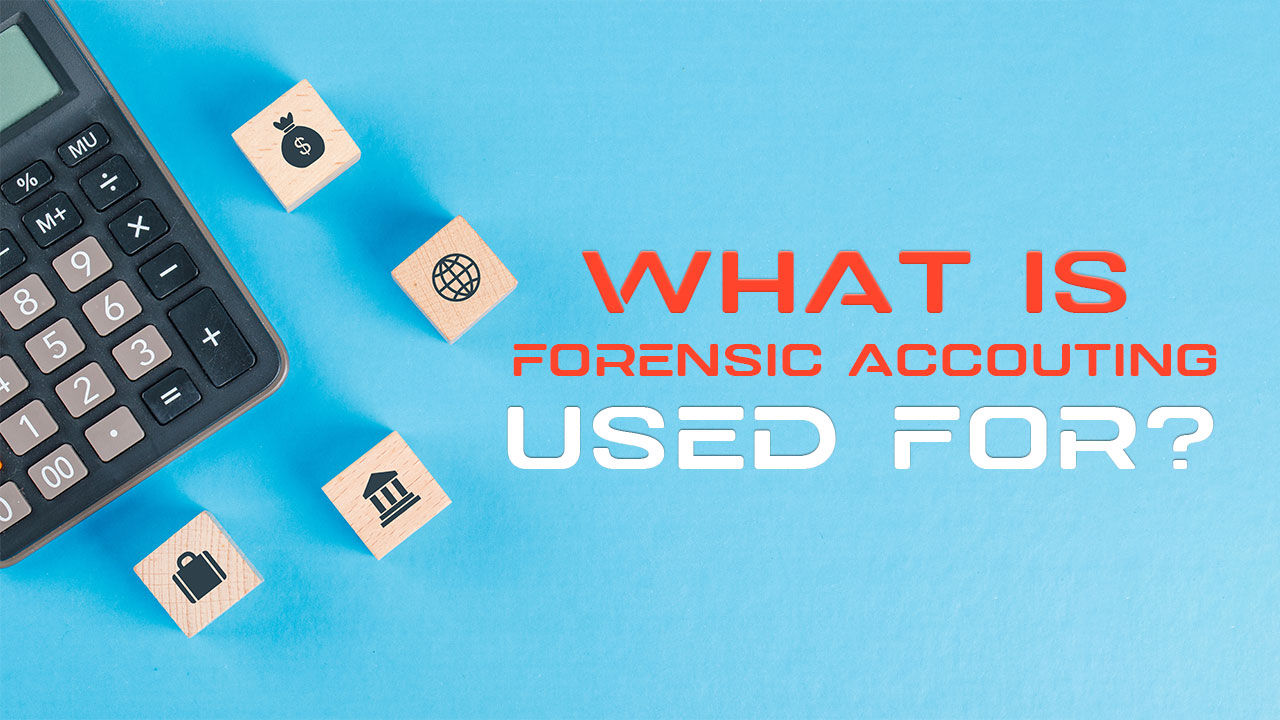Last Updated on June 14, 2023
If you’re searching for answers to the question, “what is forensic accounting used for?” you have stumbled upon the right blog. Forensic accounting is the practice of using an investigative approach to analyze financial records. It’s an important tool for uncovering fraud and for legal purposes, such as in criminal investigations or court cases. This article will discuss what forensic accounting is, why it’s used, and some of the ways that it can prevent fraud.
What is Forensic Accounting Used For?
Forensic accountants are highly trained professionals who specialize in analyzing financial records to detect potentially fraudulent activities. They use their investigative skills to uncover evidence related to money laundering, embezzlement, bribery, and other financial misdeeds. In addition to examining the company’s financial statements, they also analyze bank statements, credit card receipts, invoices, contracts, and other documents related to the case to uncover any suspicious activity.
Forensic accountants use their knowledge of accounting and auditing principles as well as their investigative skills to review documents and records for inconsistencies or irregularities that could indicate possible fraud or illegal activities. They then prepare reports detailing their findings and make recommendations on how best to address the issue. In some cases, they may even be called upon to testify in court proceedings about the case in question.
Do Forensic Accountants Look at Tax Returns?
Yes! While tax preparers simply gather information from taxpayers during filing season, forensic accountants use that same information to investigate financial crime. They may use taxpayers’ personal documents such as bank statements, income statements, and other records to investigate any suspicious activity or inconsistencies in an individual’s finances. This is especially important if the IRS suspects someone of filing false returns or failing to report all of their income on their tax return.
In addition to investigating suspicious activity on tax returns, forensic accountants also help businesses comply with applicable laws and regulations by providing advice on how best to avoid legal issues related to taxes. Although many people think that forensic accountants only work on criminal cases, they can actually provide invaluable insight into areas such as compliance, audit management, fraud prevention, risk assessment, and more.
Do Forensic Accountants Prevent Fraud?
The primary purpose of forensic accounting is to provide organizations with the tools they need to effectively detect and prevent fraud from occurring within their business operations. By thoroughly investigating potential areas of concern, forensic accountants can proactively identify potential issues before they become serious problems that could have costly implications for the company’s bottom line. Additionally, utilizing a forensic accountant allows companies to quickly respond to any instances of fraud or embezzlement that may occur by providing them with valuable insight into how the incident occurred as well as who was involved. This information can then be used to develop strategies for preventing similar incidents from occurring in the future.
Conclusions
In conclusion, forensic accounting is an important field of accounting that has many applications across both criminal and civil contexts. From helping law enforcement agencies uncover fraudulent activity to assisting individuals who are trying to protect their assets from theft — forensic accountants have an essential role in ensuring that justice prevails when it comes to matters involving money. We hope we have answered the question, “what is forensic accounting used for?” and that you reach out to us if you have any more questions.



